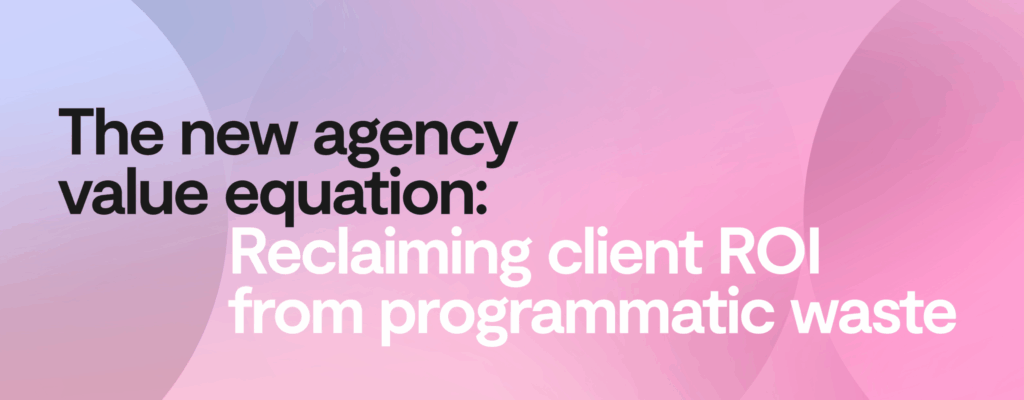- Blog
- First-party data
“People want scale, but no one knows what scale is”: Why the Guardian is focusing on quality, not volume
Publisher first-party data is a core component of privacy-safe digital advertising. It creates a clear path through the chaos that’s being created by regulators and browsers, not only in the short-term but for building solutions that are fit for the future too. The shift towards protecting user-privacy also offers a chance for publishers and brands to test, trial, and focus on alternative metrics in campaigns. It’s no longer about getting as many people as possible to ‘see’ an ad, post-cookie, marketers will need granular audience insights, which publisher first-party data can provide. The value and impact this data is having…

Publisher first-party data is a core component of privacy-safe digital advertising. It creates a clear path through the chaos that’s being created by regulators and browsers, not only in the short-term but for building solutions that are fit for the future too.
The shift towards protecting user-privacy also offers a chance for publishers and brands to test, trial, and focus on alternative metrics in campaigns. It’s no longer about getting as many people as possible to ‘see’ an ad, post-cookie, marketers will need granular audience insights, which publisher first-party data can provide.
The value and impact this data is having on building brands are starting to come through. The Guardian is taking their advertisers on a data journey and seeing great results. At a session hosted by Programmatic Pioneers, Russell Foxley, Data Innovation Specialist at The Guardian gave an inside look at what the publisher is doing in this space. Here’s a snapshot of that conversation and what this means for publishers and data-driven marketing.
“Cookies are in decline and we’ve passed the tipping point”
For brands that are beginning to work on their approach to data deprecation, there’s a deadline. By 2022 Google will remove third-party cookies from Chrome. Russell Foxley believes that while the industry has passed a “tipping point,” the deadline isn’t “so close to the end that people aren’t still investigating what can be done,” he said.
It means that many brands are at varying stages of their post-cookie strategies, and, because of that, confidence levels for being able to continue to measure will vary too. Despite this, Foxley believes the macro impact on measurement is positive. He said: “A lot of digital display gets caught up in small details, such as CTR and viewability, if you go back 25 years that was all we had to go off, therefore we used it. But measurement methods will change to be more in line with different channels.”
“Your active reach jumps back up when you switch to first-party data”
Over half of the internet is missing due to privacy regulation and browser updates, creating an anonymous web that impacts the reach of brand campaigns. When the Guardian switched to first-party data, it was no longer cut off from those browsers and saw the impact on reach. Foxley has seen “a huge amount of strength” from making that change, which also benefits the user. “There are far fewer privacy concerns when you’re using your own first-party data,” said Foxley. “You have a closer relationship with readers — you’re able to rely on that.”
Reliable data is also important for scale. “The more you can start from an accurate known point, the less likely you are to veer off course,” said Foxley. He added: “People want scale, but no one knows what scale is — what is enough scale? It’s better to focus on the right point of activation, with the right users, rather than reaching meaningless volumes of people.”
“It’s a period of transition, the only way forward is an evidence-based approach”
When publishers take their first-party data strategies to market, it’s a challenge because buyers are in the process of moving from a heavy reliance on third-party data to something unknown to them. The Guardian’s approach is to link its products and solutions to business-based outcomes, with two benefits.
Foxley said: “Firstly, we can start to get rid of poor metrics such as CTR. The other is dealing with multiple different data sets, from the buy-side you go from large data sets to mini walled gardens where a publisher will have their own first-party data.” However, the transition from large data sets to working with data owners — publishers — will require the industry to work together to build closer relationships between the buy- and sell-side. Foxley said: “The shorter you can make that supply chain, the better it is for everyone involved. Advertisers get more working media and publishers see more of that revenue.”
Publishers and brands need to focus on where they can get the best results and be strategic about everything, which can be tricky as announcements and updates continue to change the way digital advertising functions. Collecting first-party data in a privacy-compliant way is a long-term solution, and working with publishers offers a viable way for marketers to continue to reach consumers once third-party cookies go away.
To watch the Guardian’s full presentation, plus a Q&A, you can download the session on-demand below.
You may be interested in
From scale to accountability: The new agency value equation
Learn MoreThe curation revolution: Rebuilding trust and transparency in programmatic
Learn MoreKeep going, there's more to uncover.
From scale to accountability: The new agency value equation
Discover how leading agencies are rebuilding efficiency and accountability in programmatic media. Learn the 3-step blueprint to reclaim ROI, reduce waste, and deliver verifiable performance through data-enriched PMPs.
The curation revolution: Rebuilding trust and transparency in programmatic
Discover how leading agencies are rebuilding efficiency and accountability in programmatic media. Learn the 3-step blueprint to reclaim ROI, reduce waste, and deliver verifiable performance through data-enriched PMPs.
The performance paradox: Why programmatic efficiency is broken
Discover how leading agencies are rebuilding efficiency and accountability in programmatic media. Learn the 3-step blueprint to reclaim ROI, reduce waste, and deliver verifiable performance through data-enriched PMPs.
The new agency value equation: Reclaiming client ROI from programmatic waste
Discover how leading agencies are rebuilding efficiency and accountability in programmatic media. Learn the 3-step blueprint to reclaim ROI, reduce waste, and deliver verifiable performance through data-enriched PMPs.
Curation as a revenue diversification strategy: Lessons from The Arena Group
The Arena Group is finding new ways to take control of its data and revenue. Discover their powerful new approach centered on curation.
How Acxiom and Fundamental Group are solving for the Outcomes Era
Acxiom’s Ruowen Liscio and Fundamental Group’s Angus Maclaine discuss solutions for the Outcomes Era in advertising. Discover how predictive targeting, curation, and AI are delivering results in a privacy-first world.





